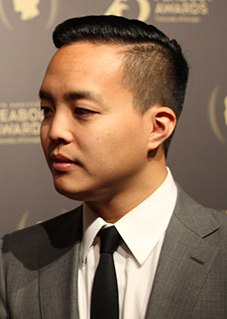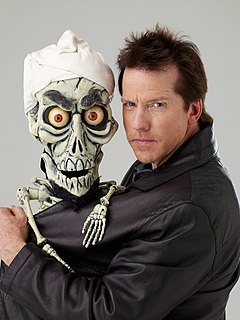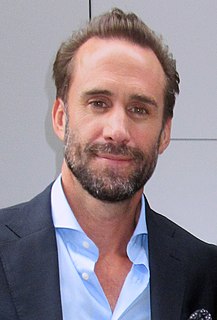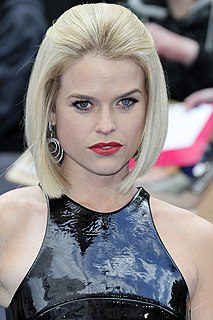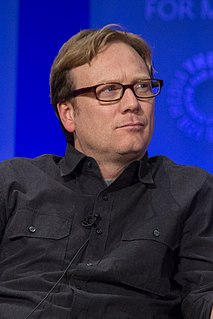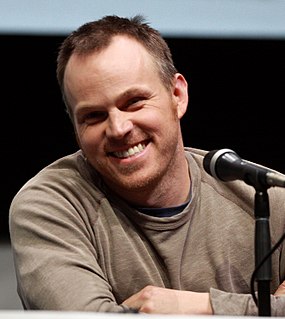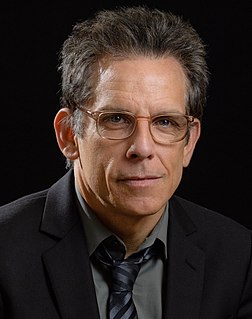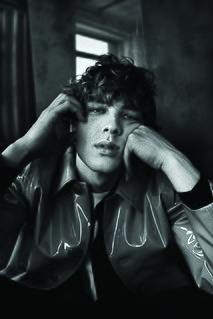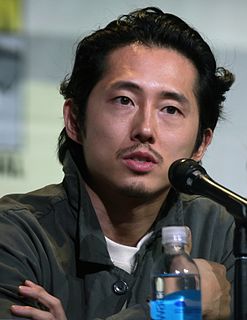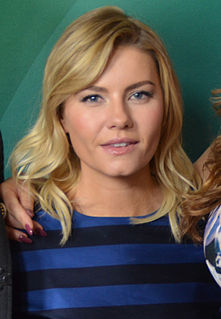A Quote by Alan Yang
On 'Master of None,' the majority of the episodes were just one story, and that was by design because we really wanted to focus in on the character of Dev and get the audience in his head.
Related Quotes
I also wanted to have fun with it. I wanted to have the scope, which I felt Merlin has, in his Machiavellian bi-polar way. He's not to be trusted, yet he is fighting for this great power and is really a master, to some degree, in orchestrating Camelot and King Arthur. He's a strange, dark devious character, and I just wanted to have fun, and get away from the cloak and long beard and pointy hat.
I have a lot of friends who were stand-ups, and they just stopped after a while, because they didn't like that battle, or they just couldn't do it. And then they would get on a sitcom and get visible and get back into it, because the audience was just way easier on them. But they lost those crucial years of learning to turn any audience into your audience.
In film, the camera can get an array of shots so the audience can see the emotion the character is giving off. Using close-ups on the character's face really helps get the message across. On stage, you can't do that. But the stage has that live feeling that you can't get anywhere else because the audience is right there.
Being in the industry, I've seen many situations where someone will get the call from the network where they say 'You guys have 5 episodes to wrap it up.' Then all your long-term story arcs gotta get wrapped up in five episodes because that's how many episodes you got left. I would hate to see that happen to 'Castle'.
There are a couple of writers I admired who were very good at giving the character's emotion without stating what that emotion was. Not saying "He was feeling tense," instead saying, "His hand squeezed harder on the chair arm," as if staying outside the guy. I wanted to try doing that. I wanted to have a really emotional story in which the characters' emotions are never straight - out told to you, but you get it.
I think it's really important, when you're redefining a character [ Spider-Man], for the audience to experience things that they haven't experienced, from the ground up. I wanted to build a character. I feel like point of view is a really crucial thing in the story, and that you need to build up the emotional building blocks, so that you can experience all the other emotions in a very specific way, rather than just experiencing it in an intellectual way.
Having read the source material, I had to have drawn from that. As a fan, I wanted to remain true to that character, but it was really cool because, as we were figuring these characters out, I realized that there was a lot more backstory, rather than what I had gotten just from reading the book. Glenn doesn't really get much of a backstory there. He's just seen as this kid who is put in this situation, not knowing where his mind-set is, but then you slowly see him start to develop.
His master’s pain was his pain. And it hurt him more for his master to be sick than for him to be sick himself. When the house started burning down, that type of Negro would fight harder to put the master’s house out than the master himself would. But then you had another Negro out in the field. The house Negro was in the minority. The masses—the field Negroes were the masses. They were in the majority. When the master got sick, they prayed that he’d die. If his house caught on fire, they'd pray for a wind to come along and fan the breeze.
